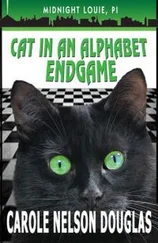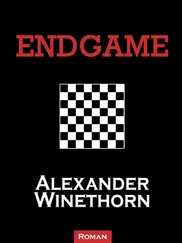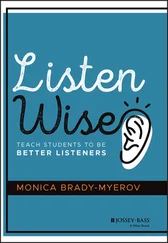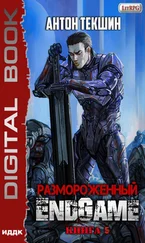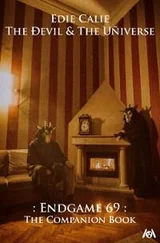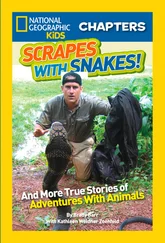So that Bobby wouldn’t think he was being psychoanalyzed, Fine avoided bringing the boy into his analysis room at first, instead inviting him to the home wing of the apartment. Bobby met Fine’s wife Marcia and their children, and then he and Fine played speed chess for an hour or two. The psychoanalyst was then one of the fastest players in the country, perhaps even stronger than Bobby had anticipated. Fine would later write that Bobby “was not yet strong opposition. My family remembers how furious he was after each encounter, muttering that I was ‘lucky.’ ”
After about six weekly sessions of chess, at the point when Fine believed Bobby had bonded with him, the psychoanalyst nonchalantly started a conversation about what Bobby was doing in school. Bobby was on his feet in seconds, recognizing that he’d been duped. “You’ve tricked me,” he blurted out, and stalked out of the apartment, never to go back. Fine later remarked that whenever the two saw each other after that, at a chess club or a tournament, Bobby would give him an angry look “as though I had done him some immeasurable harm by trying to get a little closer to him.”
Although there may be some substance to Fine’s implication that Bobby’s hostility was all about the psychoanalyst’s attempt to “get closer,” to peel back his layers, the main reason that Bobby never talked to him again was Fine’s deception , and his use of chess to accomplish it. In a boastful statement, Fine wrote “that it becomes one of the ironic twists of history that of the two leading American chess masters of the twentieth century one almost became the psychoanalyst of the other.” Hardly .
Bobby, for his part, didn’t think that anything was wrong with him. At thirteen, his behavior at chess tournaments and in clubs was quite benign, but like many teenagers, he was sometimes too loud when talking, clumsy when walking past games in progress, unkempt in grooming, and a perennial “bobber” at the board. There was nothing in his actions, however—at that time—that indicated serious problems or advanced neurosis.
Perhaps Fine’s monograph gave impetus to the press; whenever they did chess stories, reporters would look for a certain amount of aberration among the players. Bobby, therefore, frequently became a victim of a twisted interpretation of his personality. When he was interviewed by a reporter, he was often asked patronizing or offensive questions (“How come you don’t have a girlfriend?” … “Are all chessplayers crazy?”), and it became clear to him that they were going to slant the story to make him appear weird. “Ask me something usual,” he once said to a reporter, “instead of making me look unusual.” To another he talked about newspapermen in general: “Those guys always write bad stories about me. They say I’m stupid and that I have no talent in anything except for chess. It’s not true.”
Some articles proclaimed Bobby an idiot savant, with emphasis on the first word rather than the second. Chess Life , indignant at the disrespect shown Bobby, came to his defense, calling such articles “Fischer-baiting” and proclaiming them “utter nonsense.”
Of course, Bobby was obsessed with chess and spent hours playing and studying it, but perhaps not any more than musical prodigies practice their craft. And he did have other interests, including sports. He saw as many hockey games as he could, was an active tennis player, skied, swam, and belonged to a Ping-Pong club in Manhattan. Science interested him most of all. What he was not interested in was hypnotism and prehistoric animals, as some pop-culture articles indicated.
The press was sometimes negative enough to cause those around Bobby to revise their opinion of him. Some players at the Manhattan Chess Club began huffing that he was a meshuggener—a Yiddish term of disparagement suggesting he was “a little crazy.” But others, also using Yiddish, referred to him as a gaon , a genius.
Despite all the discussion about Bobby, including the nicknames and the petty comments leveled at him, he just continued to play and study the game that he loved. During that one year, from 1956 to 1957, Bobby’s official rating soared. Just fourteen years old, he was now officially ranked as a chess master, the youngest person ever to achieve that ranking in the United States. By the rules of the U. S. Chess Federation he could no longer play in amateur tournaments, which was fine by him. Bobby always wanted to play the strongest players possible, seeing it as a way to hone his abilities. And every time he defeated a player with a higher rating, his own rating rose.
In July, four months after the match with Euwe, he traveled to San Francisco to play again in the U.S. Junior Championship, which he won for the second year in a row. For each Junior Championship win he was awarded a typewriter, as well as a trophy and a parchment certificate with his name imprinted. As a result of now owning two typewriters, he began to teach himself how to touch-type from a typing book, covering the letters with tape to memorize their positions, locating the starting position, and then checking to see if what he typed made any sense. He could quickly locate the keys that he wanted—memory was never a problem with him—but he never learned to build up real speed without first peeking at the keyboard.
On top all of the prizes he was winning, he defeated grandmaster Samuel Reshevsky at an exhibition at the Manhattan Chess Club, although Bobby later recalled that it was not much of an accomplishment: Reshevsky was blindfolded (and Bobby was not) and they played at ten seconds a move. It was, however, his first grandmaster scalp.
After winning the United States Junior in San Francisco, instead of going back home to Brooklyn and then journeying out again to Cleveland to play in the United States Open, Bobby stayed on the West Coast. That gave him three weeks to relax, play chess, and travel around California. Several other boys from the tournament traveled with him and he visited Los Angeles and Long Beach, where he stayed in the home of chess player/entrepreneur Lina Grumette and swam in her pool. An elegant public relations agent, Grumette conducted a regular chess salon in her home, which players paid to attend. During the 1940s she’d been one of the strongest female players in the United States. When she met Bobby, she took a maternal interest in him, and she became one of his few lifelong friends, ultimately playing an important part in his career.
After their three-week hiatus, the young players borrowed an old automobile from the editor of the California Chess Reporter , Guthrie McClain. Since most were too young to have a driver’s license, William G. Addison, a twenty-four-year-old who also was going to play in Cleveland, got behind the steering wheel and they headed east to the tournament. The car kept breaking down, and everyone chipped in to have it repaired so that they could keep going. Riding through the hot desert with no air-conditioning led to petty arguments, and a fistfight broke out between Bobby and Gilbert Ramirez (who’d taken second place in the United States Junior). Bobby bit Ramirez on the arm, leaving scars that remain fifty years later. (Ramirez proudly displays them, as if to say, “This is the arm that was bitten by Bobby Fischer.”) Eventually, the car broke down entirely and had to be abandoned. The boys arrived in Cleveland by bus on the evening before play began at the U.S. Open.
Before he was to play his first game, Bobby was rated at 2298, making him among the top ten active players in the country. There were 176 players in the two-week, twelve-round tournament. For his first round, Bobby was paired to play white against a Canadian player who’d registered in advance and paid his entry fee but was nowhere in sight. When the tournament began, Bobby made his first move and pressed his clock, which then started counting down against his invisible opponent. After an hour of waiting, the game was declared a forfeit, and Bobby received a gratis point. Curiously, later in the tournament that “free” point almost led to his downfall. In his next five games, Bobby won three and drew two; one of the draws was with twenty-seven-year-old Arthur Bisguier, the defending United States Open Champion and one of the strongest players in the nation.
Читать дальше
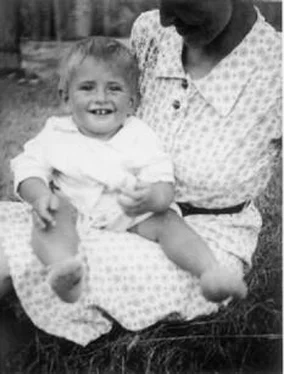

![Антон Текшин - EndGame [СИ]](/books/394477/anton-tekshin-endgame-si-thumb.webp)
